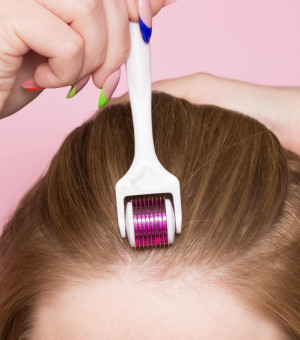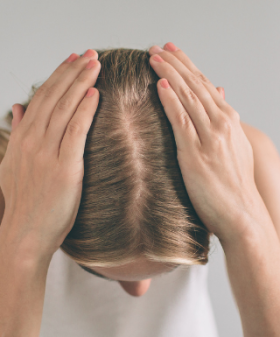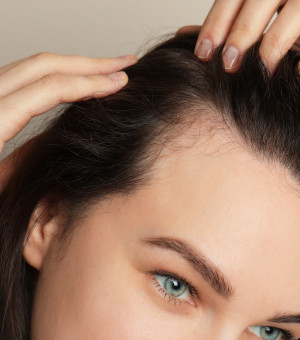Solutions and treatments
After having found the cause of the hair loss, it is possible to manage the alopecia.
Among the most common treatments, there is Minoxidil, which is a vasodilator that will make blood vessels swell and stimulate hair growth. It is a lotion or foam that must be applied every day in order to see the benefits. However, this type of treatment may not be recommended for people with heart problems, high blood pressure, pregnant or breastfeeding women.
Another treatment often prescribed is Finasteride, which can be taken alone or in addition to Minoxidil. Finasteride is an "anti-testosterone" type tablet that prevents the conversion of testosterone in the scalp.
In all cases, these treatments must be taken over a very long period of time. In fact, the treatment works and stabilises hair loss while it is taken, but when it is stopped, there is a good chance that hair loss will resume in the case of androgenetic alopecia.
There are many products such as over-the-counter shampoos and natural supplements available, but the majority of over-the-counter products are not really proven to be effective.
Another solution to hair loss is of course hair transplants. In advanced cases of baldness, two types of transplants are possible: transplantation and extraction. Depending on the need, the surgeon will plan the best treatment. This is a fairly expensive procedure, but the most effective. However, the genetic process of hair loss will continue. It is therefore necessary to add certain treatments such as Minoxidil or Finasteride in order to control hair loss.
In any case, if you suffer from alopecia, it is recommended to consult a dermatologist in order to have a really effective treatment.
Information gathered from the episode of Les Aventures du Pharmachien, aired on January 14, 2022 on ICI tou.tv. (In French only)







